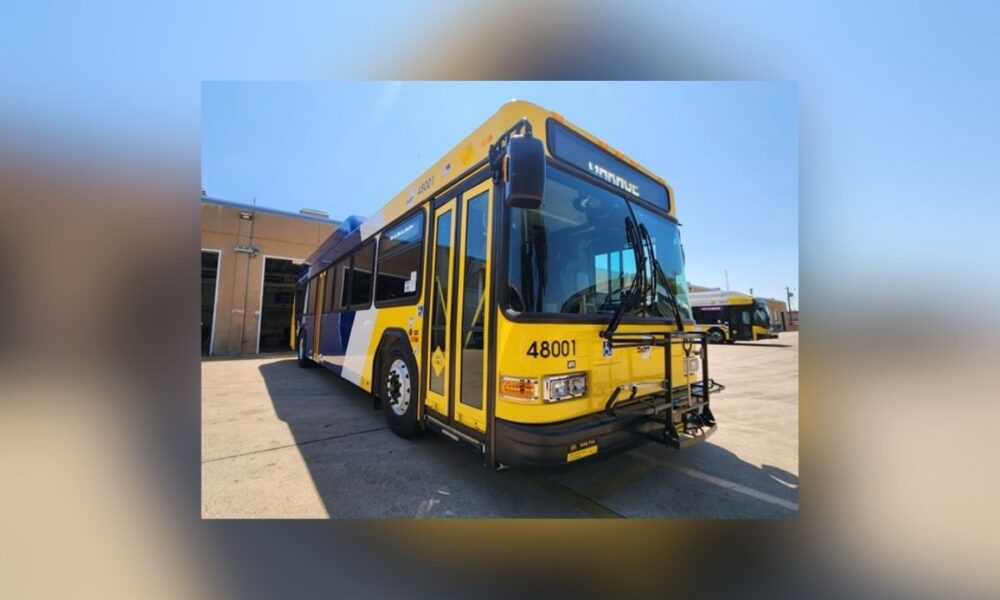Dallas Area Rapid Transit rolled out the first two of 476 new buses on Wednesday, calling it the start of a major fleet overhaul to modernize public transit ahead of the 2026 FIFA World Cup.
The buses, part of the agency’s DART Transform initiative, were manufactured by California-based Gillig and feature compressed natural gas engines, bilingual displays, tinted windows, upgraded safety systems, and improved bike racks. DART plans to deploy 20–30 buses per month starting in October, with the first routes operational by late November.
“This is the first major component of DART Transform that every rider will get to experience,” said CEO Nadine Lee during a media ride-along, according to KERA. “We can’t wait to see the positive impact these new vehicles will have on our customers.”
The $103 million project was partly funded by a federal transit grant, with DART claiming the bulk purchase saved an additional $15 million. The fleet replacement is the agency’s first in 15 years.
Context: Mounting Criticism
While the agency touts modernization, DART has faced escalating criticism over its leadership, transparency, and service failures:
- Councilwoman Cara Mendelsohn has pressed the agency to release crime statistics, calling out DART’s “data dodge” on safety transparency.
- Garland recently joined a suburban revolt against DART leadership, citing broken promises and lack of accountability.
- The Dallas Express revealed earlier this year that DART’s chair offered funding deals to suburbs in exchange for backing down on reform demands.
Despite promises to improve reliability, riders continue to report long waits, unsafe conditions, and unreliable service — issues critics argue run deeper than fleet upgrades.
Taxpayer Concerns
DART officials insist the investment will reduce maintenance costs as the current fleet nears the federal replacement threshold of 12–14 years or 500,000 miles.
“We’re trying to do our part to make sure that we spend taxpayer dollars as wisely as possible,” Lee said.
But watchdogs point to DART’s history of financial mismanagement and oversight failures. The Dallas Express has documented how the agency has considered major service cuts even as it expands capital projects.
Bottom Line
The bus replacement program marks a visible upgrade for riders. But as DART faces mounting pressure over governance, transparency, and safety, critics question whether new vehicles can fix deeper systemic issues.


